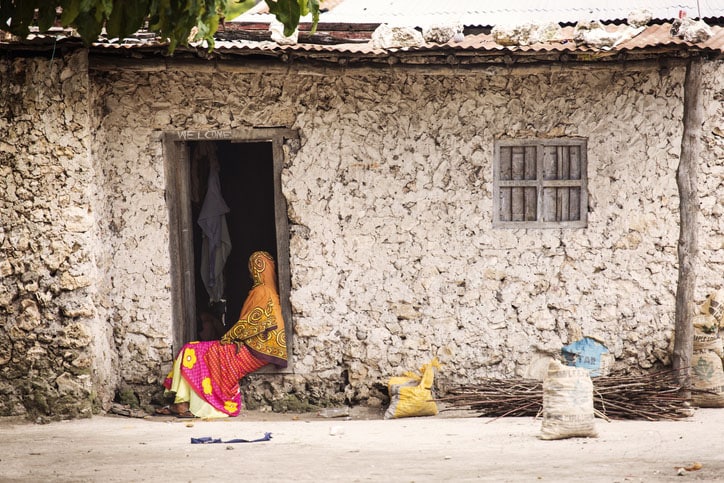 danm/Getty Images
danm/Getty Images born to a fair Circassian concubine in Zanzibar,
Salme, my sad heroine whom he begat,
was born to fall just like a Middle Eastern falling star.Far from Oman her father cultivated cloves
in Zanzibar, importing slaves to do the labor which
made him from his abundant, fragrant spicy groves
extremely powerful, near Africa, and very rich.
When her father died, beloved Salme fell
in love with a rich German merchant, so she left her home,
becoming Christian—Emily! An Arab belle,
apostasy epitomized by beauty in her tome.
She told how once she’d had three children she became
a widow, for her merchant husband fell beneath a tram
in Hamburg, and she found life there was not the same
without a husband. Everything now seemed to her a sham.
She was contrasting German coldness with the heat
of her close family and friends at home, and greatly missed
the bubbly laughter of the Arabs on the street,
something rare in solemn German homes, and hard to beat.
Salome thought she could abandon Zanzibar,
but Zanzibar remained within her heart, on German soil.
If you should try to change the person who you are,
stay close to home, or you’ll be yearning for your native soil,
just like Judeans, who in Babylon would weep,
remembering—though some tried not—walls of Jerusalem:
a lot whose right hand never fell asleep
and played their harps to make sure they would not forget this gem.
Too many Jews today no longer sing when far
away from Zion, and assimilate like Salme, to
a land as far from Israel as is Zanzibar.
Unlike Salme, few will realize the harm they do.
Adam Wheatcroft reviews “The Sultan’s Shadow: One Family’s Rule at the Crossroads of East and West” by Christiane Bird (NYT Book Review, 9/12/10):
A green and fecund island, ¬barely 20 miles off the east coast of Africa, Zanzibar for centuries represented gratified desire. For voyagers across the Indian Ocean its safe harbor was a refuge after a long journey. The vast Chinese trading fleet led by the eunuch Zheng He moored at Zanzibar in the early 15th century to exchange its silver for African gold. For Vasco da Gama, who landed there in 1499, beginning 200 years of Portuguese domination, it was an island of repose for men slaughtering their way across the Eastern seas….
Gershon Hepner is a poet who has written over 25,000 poems on subjects ranging from music to literature, politics to Torah. He grew up in England and moved to Los Angeles in 1976. Using his varied interests and experiences, he has authored dozens of papers in medical and academic journals, and authored “Legal Friction: Law, Narrative, and Identity Politics in Biblical Israel.” He can be reached at gershonhepner@gmail.com.





















 More news and opinions than at a Shabbat dinner, right in your inbox.
More news and opinions than at a Shabbat dinner, right in your inbox.